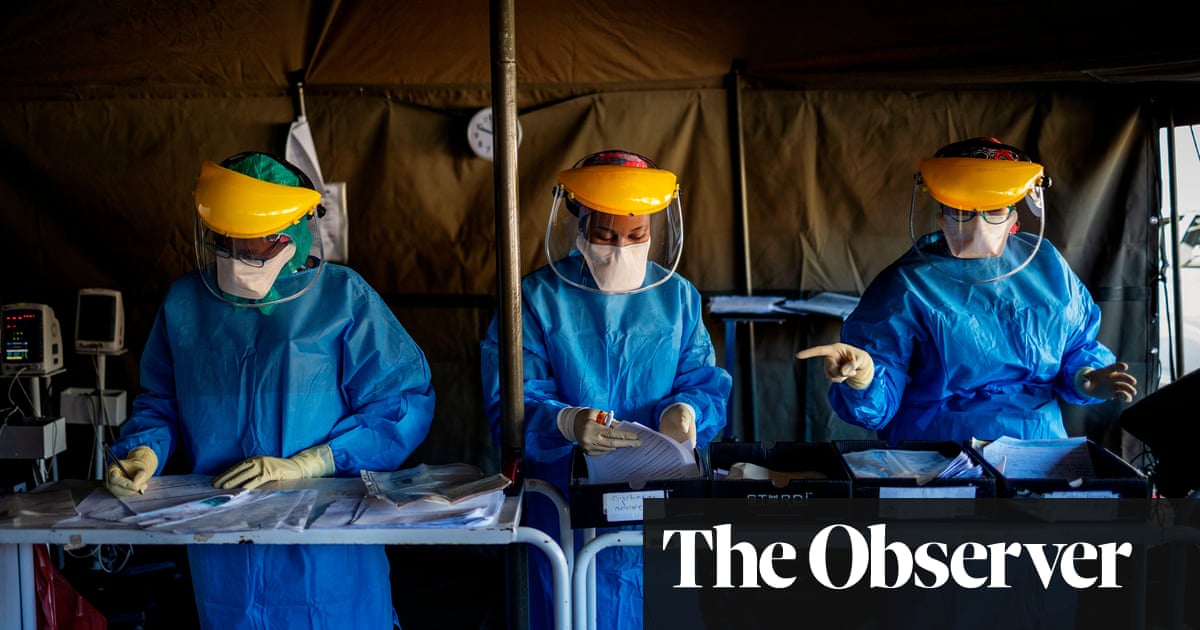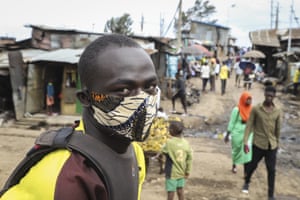Nations battle to contain spread after World Health Organization warns of 10 million cases within six months

African nations are banking on aggressive screening and testing strategies as their best and possibly only defence against the Covid-19 virus.
After a slow start, a sudden rise of more than 40% in the number of Covid-19 cases on the continent in the last 10 days to 28,000 and a similar increase in the number of deaths to 1,300 has worried specialists.
The World Health Organization has warned of 10 million cases on the continent within three to six months, though experts say that the death toll could be lower if authorities are able to move swiftly to contain outbreaks of the disease.
We are at the beginning in Africa, Dr Mike Ryan, executive director of the WHOs Health Emergencies Programme, said last week.
Though some of the worst effects of infection may be mitigated by the relative youth of many people on the continent, others may be made more vulnerable by malnutrition or existing conditions, such as HIV.
Under-resourced health systems are unlikely to cope with a significant surge of those infected by the disease. Provision of intensive care facilities on the continent is grossly inadequate. Many countries with populations numbering tens of millions have only a handful of ventilators.
So far it has been difficult to fully grasp the extent of the spread of the disease in Africa, as testing has been patchy.
Djibouti has recorded 98.6 cases per 100,000 people, the highest prevalence on the continent. But the tiny country has conducted just over 10,000 tests, as many as neighbouring Ethiopia, which has more than 100 million people.

South Africa, which currently has the highest number of cases in sub-Saharan Africa, with more than 4,000, is conducting up to 10,000 tests every day in a bid to find and isolate the disease before it can take hold in the crowded townships where up to a third of the 56 million population live.
The strategy draws on South Africas long experience in fighting other infectious diseases and its extensive network of community health workers, but is a recognition that social distancing is not always practicable in dense, poor neighbourhoods.
Last week, Cyril Ramaphosa, who imposed one of the worlds strictest lockdowns in South Africa four weeks ago, announced what he described as a gradual and phased recovery of economic activity.
We cannot take action today that we will deeply regret tomorrow [but] our people need to eat. They need to earn a living, Ramaphosa said in a televised address.
However, only minor changes were made to the strict regime which is enforced by soldiers and police and there are fears of a new wave of infections with the southern hemispheres winter approaching.
Advisers say that a strategy based on testing allows African countries to minimise lockdowns that inflict enormous hardship on those who depend on income earned each day to be able to feed themselves and their families. Earlier last week, Ramaphosa announced a social and economic relief package worth $26bn.
South Africa, of course, is an exception. Few African countries can find funds for welfare programmes on that scale and most have a very, very limited and very, very strained testing capacity, John Nkengasong, director of the Africa Centres for Disease Control and Prevention, said.
In the two months since the continent began mobilising to fight the outbreak, less than 500,000 tests have been conducted on the population of more than 1 billion, a level lower than Italy, one of the worlds worst-hit countries.
If you dont test, you dont find. And if you dont test, you are blinded, Nkengasong said. It is an uphill battle to build health systems while you need them … That is what we are actually doing now. We are playing catch-up and that is a very, very tough thing to do.
Even in the best scenario, the United Nations says 74 million test kits and 30,000 ventilators will be needed by the continents 1.3 billion people this year.
Obtaining such equipment has been made more difficult by the export restrictions placed on medical items by more than 70 countries. Travel bans have closed borders and airports, blocking supply chains.
In Nigeria, Africas most populous state, the government announced a strategy of test, treat, trace and isolate.
Before the pandemic, Nigeria had only 350 ventilators, most in the private sector. Around 100 more have been bought in recent weeks, though many other bottlenecks, such as a critical lack of specialised healthcare workers, remain.
Dr Sani Aliyu, Nigerias national coordinator of the Covid-19 Presidential Task Force, said officials were keenly aware of the problems of lockdown in a country where many of the 200 million inhabitants need to leave home every day to earn enough for basic subsistence.
To ease the threat of food shortages, the government has released huge quantities of grain from the national reserves, and distributed 100 trucks of rice across the country, along with approving conditional cash transfers.
But Aliyu admitted that such assistance was probably going to be a drop in the ocean compared to what is needed.


Recent Comments